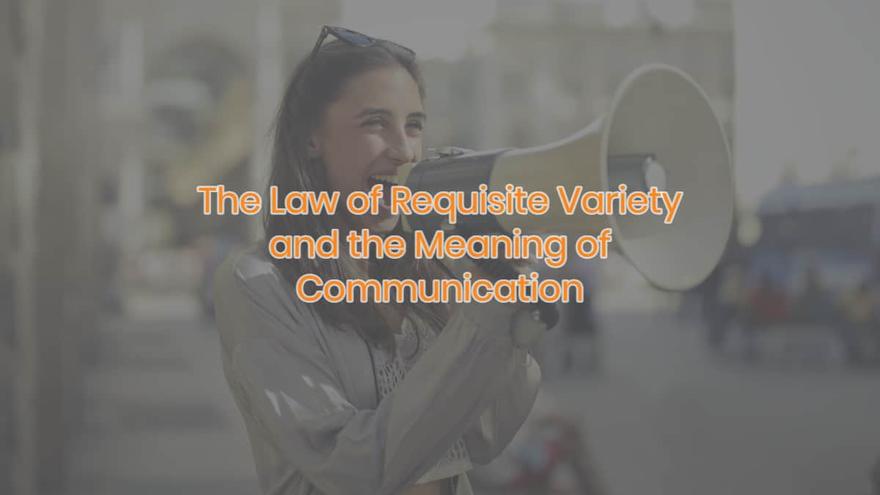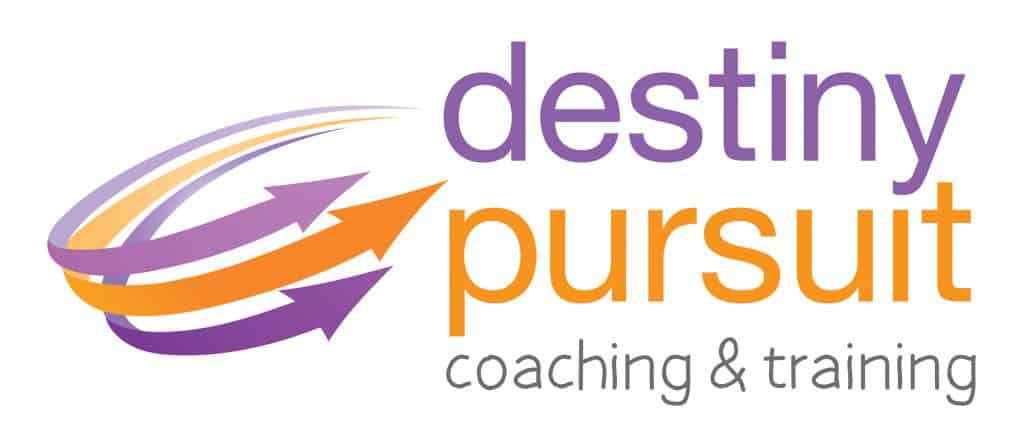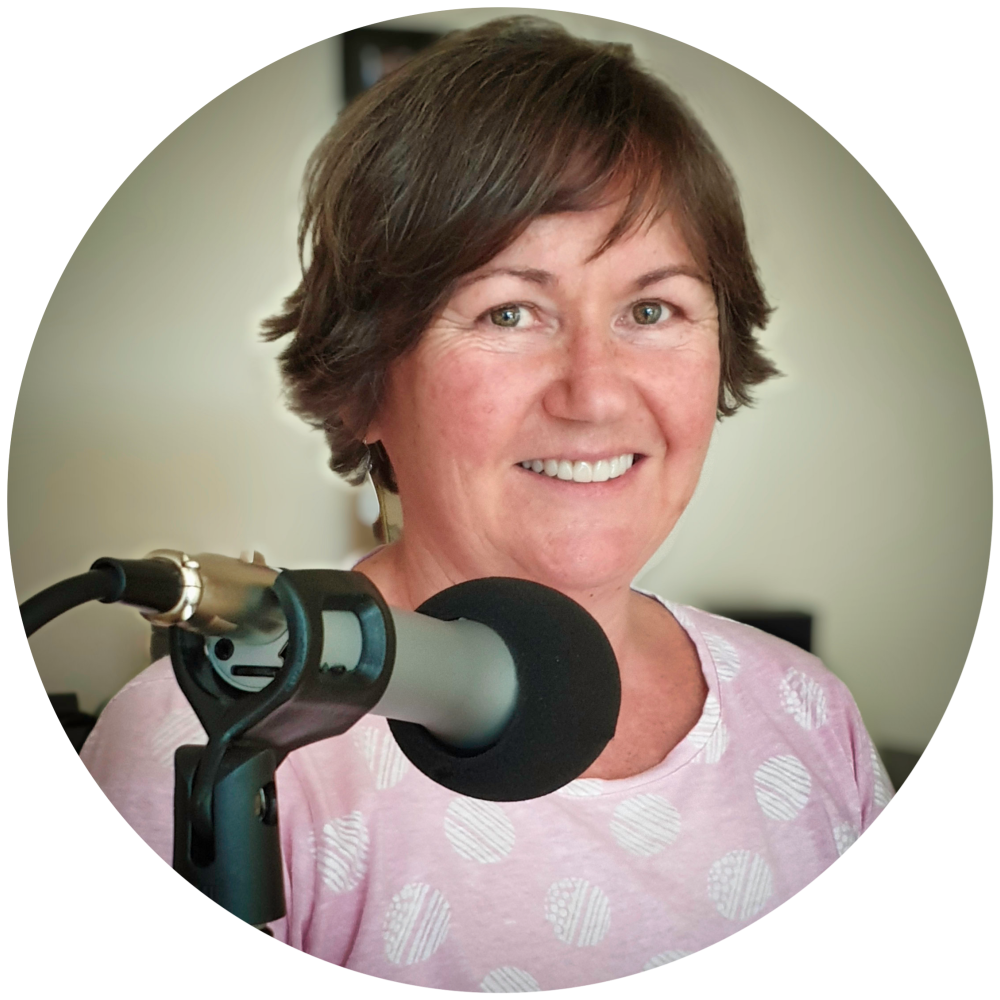The Law of Requisite Variety and the Meaning of Communication - NLP Matters, Episode #034

As you follow these podcasts, one of the pictures you will be starting to form about NLP is its expansive nature. As we apply NLP in our lives, we get to expand our notion of what is possible for humans to achieve.
In NLP, we emphasise ways of being, thinking, and doing, that increase growth, choice, possibility, personal responsibility, and ultimately, personal power. Together, they can be seen as the characteristics of what Carol Dweck a Professor of Psychology at Stanford University calls, the growth mindset. This expansive mindset stands in contrast to a fixed mindset which is characterized by resistance to change, fighting to keep the status quo, limiting choice, blame, and helplessness.
In this episode, we’ll continue to explore two more fantastic NLP Presuppositions that ultimately show us the power of bringing behavioural flexibility in our lives - The Law of Requisite Variety and that the Meaning of Communication Is the Response You Get.
Listen to the podcast to learn more.
Listen to the Podcast
Here are some key takeaways from this episode:
One of the main strategies that underpins the growth mindset approach is the practice of flexibility.
There are two definitions of flexibility that I really like in this context. The first is that flexibility is “the willingness to change or compromise.” When we are willing to change and compromise then more choices open up, more possibilities, and we are more able to grow. The second definition of flexibility that is equally important in relation to a growth mindset is “the quality of bending easily without breaking.” I like this definition because it suggests that we can be flexible whilst still behaving in ways that are aligned with our values. Instead of living as if everything is black and white, we can embrace flexibility and experience so many other colours and shades of life, and we can still live congruently with our own map of reality.
When we bring flexibility to how we meet the world, we put ourselves in a position of influence. We can impact outcomes and with our capacity for flexibility we can build even more quality into our relationships with others. Both the presupps we are looking at in this episode emphasise this power of bringing flexibility.
The Law of Requisite Variety
- The law of requisite variety originates from within systems theory. It states that the person with the most behavioural flexibility will ultimately control the system.
- When we are very rigid about something about how we want something done or about our expectations or what we require other people to do, we put ourselves into a relatively powerless position because we are totally dependent on circumstances aligning with our rigid requirements. Whereas, if we are outcome-focused and we have the capability of adapting behavior to suit the situation, we can stay focused on the outcome we want to achieve and potentially avoid obstacles, negotiate agreements, reframe misunderstandings, and still move forward to ultimately achieve the outcome we want.
- Behavioural flexibility not only empowers us, but it is also a great model for others. We want people to know that there's always a way, and all we need to do is explore the different ways together to find a pathway that works.
The Meaning of Communication Is the Response You Get
- We are absolutely and totally at cause for our own communication. We are 100% personally responsible for getting our message across.
- The way people interpret our message is ultimately our responsibility as a communicator. This presupposition means that we don’t attempt to shift responsibility for the successful communication of our message onto the person we are conveying that message to.
- Totally embracing this presupposition allows us to say goodbye to excuses and justifications. If we think we're conveying one message and the way the other person interprets it as totally different, then, we must look at ourselves to change how or what we are communicating so that we are successful in conveying our meaning to them so that they do get it.
- The responsibility for successful communication is back on us. We are the ones who have the capability and the skills and the training to be able to adapt our communication and to make sure that the message we're giving actually penetrates and gets through whatever barriers there are existing between us and the other person.
- There are no resistant people, only lack of rapport. The meaning of our communication perhaps is getting lost because of the lack of rapport we have with the other person, and it is up to us to ensure that we re-establish rapport and use some strategies to do that.
- When we take this responsibility for our own communication, it also liberates us from being entrapped by other people's interpretation of us. Rather than becoming a victim and taking on board that that person sees us this way and there's nothing we can do about it, it puts the onus of action and the option of action right back onto us. It is in our own hands. If we want to adapt our communication and adjust our style, then we can get a different response.
What happens if we do the opposite to these presuppositions?
- It puts us into a helpless and powerless space as communicators.
- If we are rigid in the way we approach others, and we take no responsibility for how we communicate our message to others, the message we give is we don’t care about how the other person sees the world. We just expect them to see it from our perspective and even just agree that our perspective is somehow better than theirs.
- This attitude basically negates just about every other NLP presupposition that we have been talking about - we are acting as if our map IS the territory; we are not respecting the other’s map; we are rejecting or ignoring feedback from others; and refusing to accept that everyone is doing the best with what they have got.
- Similarly, we shut down and refuse to explore alternate possibilities and most likely our reward for this approach is that we get to be righteous.
The degree that we can experience happiness, joy, contentment, and high-quality relationships, is inversely proportional to the degree that we rigidly insist on being right. In fact, you may have heard the expression, “you can either be happy, or you can be right.” Now, sometimes people react against this, saying that giving up being right somehow involves giving up a part of ourselves – our identity. That compromise means “giving in” to someone, that it means we “lose”. However, people who truly embrace these two presupps know that it is not the case, because we know that life is not about “winning” or “losing,” this is a false construct that will ultimately steal happiness, joy and often even love out of our lives.
The law of requisite variety coupled with an acceptance that the meaning of communication is the response it gets, free us from the need to cling on to rigid thinking, strategies and perhaps even beliefs that belong in the past. Instead, it enables us to step up and really take the driver's seat in our own lives knowing that the person with the most behavioural flexibility ultimately controls the system.
In our next episode, we’ll continue to explore the final three NLP Presuppositions - that all procedures should increase wholeness, that all procedures should be designed to increase choice, and that behaviour and change should be evaluated in terms of context and ecology.
Listen to the Podcast
Joanne Clark
Joanne Clark is an Internationally accredited Master Trainer of NLP who has been delivering NLP training since 2011. Being on her feet in front of training rooms is where Jo loves to be and her passion for inclusive and immersive training that delivers outstanding learning outcomes is apparent to everyone in her training rooms. On average Jo delivers 140 days of training per year in addition to online webinars, guest speaker events and group coaching.
“NLP is at the core of all my training and coaching, it is at the core of who I am, how I interact and connect with people. I am absolutely passionate about spreading the NLP tools across the planet as I endeavour to support Robert Dilts’s vision of Creating a world to which people want to belong.” Joanne Clark
Certified Master Trainer of NLP; Master Practitioner NLP, Hypnotherapy & Matrix Therapies; Performance Coach; Cert IV Coaching; Advanced Practitioner in Coaching; Cert IV in Business; BA(Hons); Majors in Sociology and Psychology; Parent Education Leadership Training (PELT) Certificate; Mother of four children; Private Pilot (PPL); Diploma in Life Coaching


0 comments
Leave a comment
Please log in or register to post a comment